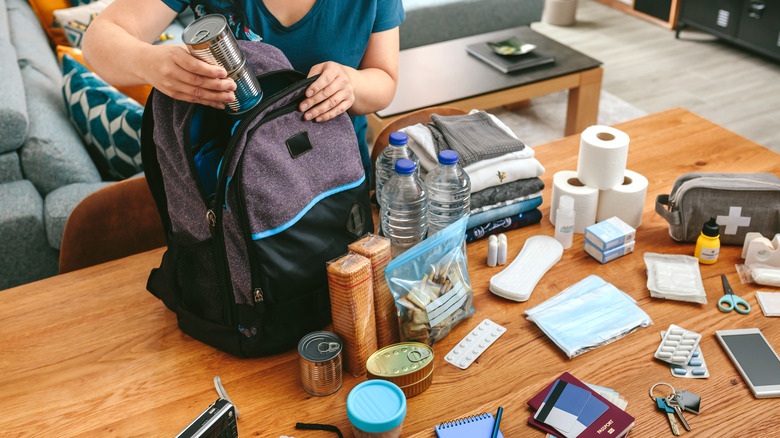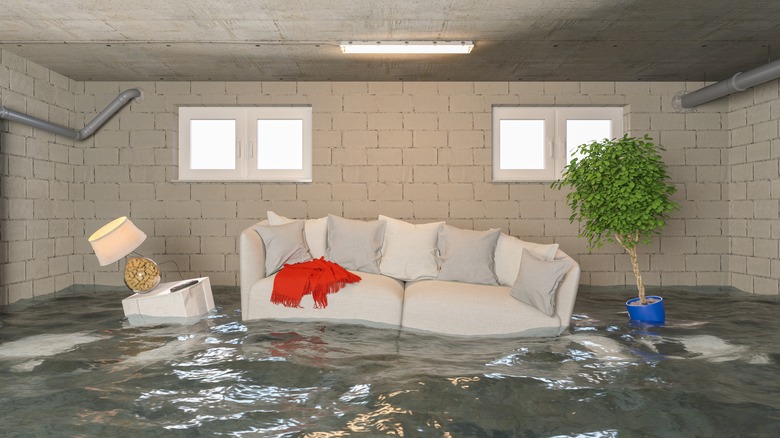3 Savvy Survival Tips For Dealing With Common Household Crises
Despite all the preparation you take when it comes to common household crises, there's always the possibility you'll be faced with one anyway. Now, we aren't talking about fires or tornados; we're talking about less destructive crises, such as a backed-up toilet or power outage (which occur more than 1,000 times a year, says Tara Energy). Regardless, a crisis is a crisis, and if you're dealt an unlucky card and experience a common household emergency, you need to be prepared to properly take care of it.
When you come face-to-face with a household crisis, there are steps you can take to avert it. The first is not to panic. When you panic, you aren't able to think clearly; therefore, handling the situation becomes much more difficult, Medical News Today claims. If you keep your composure, you're more likely to fix the problem. To assist you during a crisis within your home, here are three savvy survival tips you can use.
Basement flooding
According to iPropertyManagment, an average of 14,000 people experience water damage in their homes every single day. That adds up to about $20 billion in water damage in the United States alone. The biggest cause of flooded basements is a leaky basement foundation, Basement System states. If your basement floods, there are necessary precautions you and your family should take to avoid injury. The most important precaution is avoiding the basement at all costs if the water is more than an inch deep. Standing water can harvest harmful bacteria, and if that bacteria becomes airborne, you're at risk of infection, Real Seal explains.
If you absolutely must go into the basement, steer clear of electrical wires or fixtures to avoid electrocution. For extra protection, put on a pair of waterproof rubber boots before venturing downstairs. When flooding occurs, you need to call a professional that can pump the water out of your basement as soon as possible.
Wild animals inside the home
No matter how much you love animals, finding a raccoon that's been living in your attic is shocking, to say the least. Your first instinct is probably to shoo the animal away with a broom, but that will scare the critter, forcing them to hide somewhere in your home, which makes it much more difficult to capture and remove. Do not close off any entry points either. Think about it: if you close your doors and windows, you're trapping the animal inside, meaning there's no way for it to get out on its own.
Instead, Apartment Therapy recommends giving the animal a way out by opening a door or window. If you choose this method, it's important to give the animal a quiet and peaceful environment to encourage it to leave on its own. If you're unsuccessful in getting rid of the critter yourself, contact your landlord or animal control immediately.
Phone fell in the toilet
Depending on who you ask, dropping your phone in the toilet may not be considered an emergency; however, in this day and age, we assume most people would consider this a crisis (especially as the price of mobile phones continues to rise). If your phone does fall in the toilet, chances are you will try using the phone to see if it's still functional. Unfortunately, this can actually ruin your phone by overworking the system, says Angi. Instead, turn off your phone and remove the SIM card, battery, and micro-SD card.
Let the battery, SIM card, and micro-SD card dry for 24 to 48 hours. You can place your entire phone in an airtight container with a silica gel packet (the packets you might find when you purchase a pair of new shoes or a handbag). The silica gel packet will help draw the moisture out of your phone. The more packets you use, the better.



